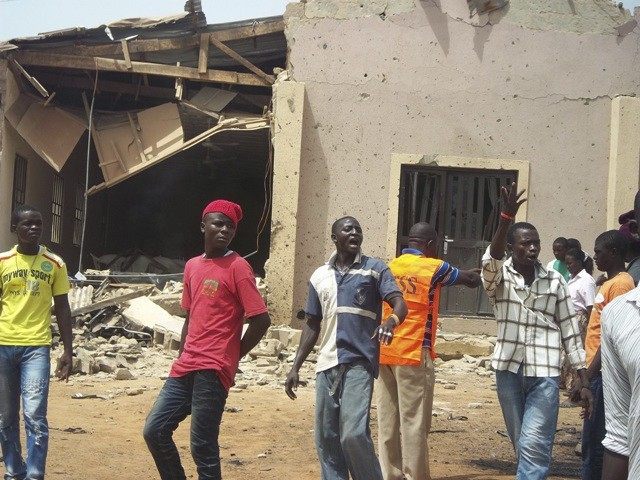A mob in the northeastern city of Bauchi, Nigeria, beat a woman to death and set her on fire after vigilantes aroused suspicion that she was a Boko Haram-affiliated suicide bomber. The woman was found to have no association to terrorism, her erratic behavior explained by a history of mental illness.
The BBC reports that 33-year-old Thabita Haruna was stopped by vigilantes at a marketplace when she refused to pass through makeshift anti-terror screening procedures. In the ensuing scuffle, many in the crowd noticed that Haruna was carrying bottles around her waist. Believing the bottles to be part of a suicide bomb, they set upon her and beat her to death. BBC adds that the crowd “placed a tyre sprinkled with petrol over the woman’s head and set it alight after she was beaten.”
Authorities have yet to arrest anyone in connection with the homicide, though they have categorically ruled out any ties between Haruna and terrorist networks. Speaking to Nigeria’s Daily News, Bauchi police spokesman Haruna Mohammed explained, “All our investigations have proved that this woman was mentally sick and had nothing to do with suicide bombing… We as law enforcement agents will not stand by and allow people to take the law into their hands.”
Haruna’s mother confirmed to the newspaper that her daughter was mentally ill. “She would get an occasional bout of the illness and when that happened she would go wild and destroy things,” she explained. “She would gather household articles and burn them.” Her sister explained the depth of the tragedy to BBC: “I feel very very sad because she is my blood… We sleep in the same bed, we eat at the same plate…. That really pains me.”
The panic at the Bauchi market regarding the woman is in large part a product of Boko Haram’s strategic decision to employ more female suicide bombers in northeast Nigeria. In December, reports began to surface that teenaged girls had become especially desirable to Boko Haram as suicide bombers, and this fate met many girls who had been abducted but not married off to Boko Haram jihadists. Most recently, in February, a young female suicide bomber killed between seven and fifteen at a market in Borno state.
A coalition of nations including Nigeria, Chad, Cameroon, Niger, and Benin have organized military forces to combat the threat of Boko Haram, which has expanded out of Nigeria across Lake Chad and into Chad and Cameroon. The President of Chad, Idriss Deby, claimed to know the whereabouts of Boko Haram leader Abubakar Shekau in a press conference this week, asserting that it was in the terrorist leader’s “best interests” to surrender.

COMMENTS
Please let us know if you're having issues with commenting.